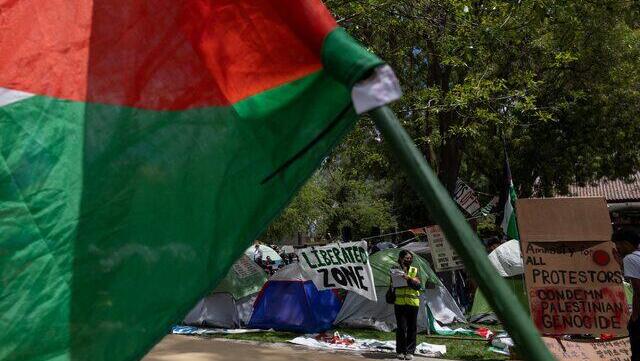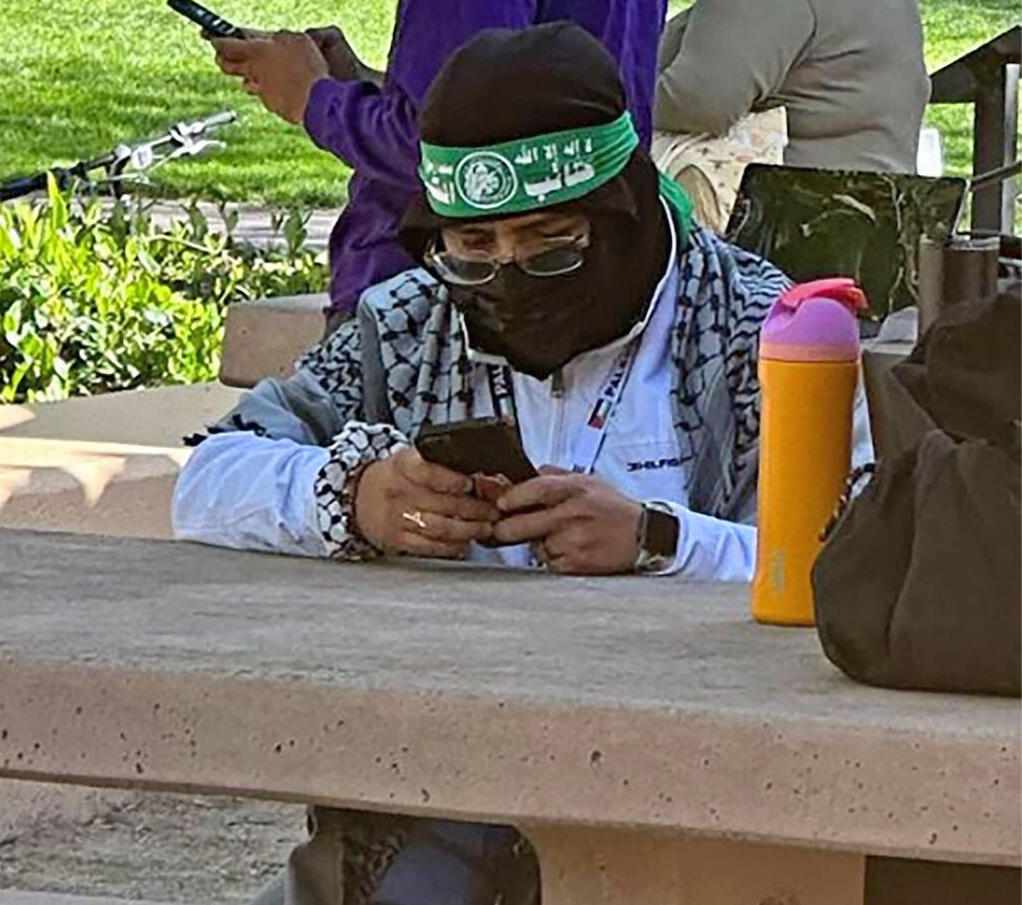Getting your Trinity Audio player ready...
The acceptance rate for the doctoral program at Stanford University's Faculty of Education is less than 4%, and the challenge of acceptance into the special track that also combines Jewish studies is even higher.
Therefore, when Zahava Feldstein was accepted into the coveted program, right after completing her master's degree with honors in religious studies at the University of Chicago, she felt that she had fulfilled a dream. But less than a year and a half later, she was forced to withdraw from the prestigious institution's program due to what she calls "pervasive antisemitism" and a hostile atmosphere from students and faculty.
In a personal column for the Jewish magazine Moment, she describes a series of cases that led her to the decision, including a meeting with the dean of the faculty where she was asked to present Zionism as a "white supremacist project," as part of a curriculum she wrote for Jewish high school students. "Zionists are the in-group upon which white supremacy depends," said the dean, according to Feldstein.
"Whereas before Stanford’s Graduate School of Education (GSE) had one Jewish studies student enrolled in the 2023 PhD cohort, or year, now it will have none. I have decided to drop out," Feldstein wrote in the column. "Stanford University and its community members proved uninterested, on countless occasions, in providing me the opportunity as a Jewish student to learn, succeed and engage in a scholarly community."
Feldstein says the antisemitism she experienced was not limited to a single incident, but became a routine matter during her studies, and she had to absorb harsh statements from her classmates every day because of her Jewishness. Among other things, one student stated publicly: If anyone “thinks the State of Israel should exist, we will never be friends.”
In another case, Feldstein said that a student broke down in tears after a presentation she gave on evaluation methods in schools. The presentation did not deal with the Israeli-Palestinian conflict at all, but the student claimed that it "felt like colonial violence" and reminded her of "the genocide."
"Of course, to my classmates, October 7, 2023, was a day to be celebrated as 'resistance by any means necessary,' its impact on Jewish lives, bodies and consciousness entirely ignored," according to Feldstein.
Of course, to my classmates, October 7, 2023 was a day to be celebrated as 'resistance by any means necessary,' its impact on Jewish lives, bodies and consciousness entirely ignored
She pointed out that none of her classmates were Arab, Palestinian or Jewish. "They were primarily women of color who deeply dislike Zionism as a concept and understand it as merely a racist, colonial evil rather than the return of an indigenous people to their ancestral homeland," she said.
"My classmates directed their animosity toward the Israeli government against me personally while promoting the naive and prejudiced idea that Zionism is an arm of global white supremacy. And that, somehow, I am the incarnation of both social ills," Feldstein wrote.
"My classmates reduced me to the archetypes that fed the discrimination towards my ancestors – a hatred of Jews so deep that an entire society in Europe wanted to exterminate us. To them, even if a Jewish person does not agree with the actions of the Israeli government and openly critiques the mechanisms of violence in Zionist political and military practices, that person is in the end still a Jew," she added.
Feldstein also sharply criticized the academic level of the faculty. "The faculty, too, introduced classroom dialogues about sensitive topics that they were unqualified and ill-prepared to facilitate. My professors failed to recognize their own limitations, which put undue stress on me nearly every day," she wrote. She added that the lecturers' lack of pedagogical training on the subject contributed to the hostile atmosphere she experienced. "I was citing academic books and articles while they quoted TikTok and Twitter. I was the only student present with any scholarly familiarity with the complex history of Israel-Palestine."
When she dared to complain, she was reprimanded by one of the institution's deans who "told me that antisemitism was 'institutional' and there was nothing he could do about it." According to her, "the next time we met, he relayed that antisemitism was only an issue in the School of Education because I had made it into one. He accused me of overreacting and said, without providing examples, that I needed to take accountability and 'accept blame' for creating situations that encouraged antisemitic behaviors and comments. He also reacted negatively to my sharing my experiences with the task force studying antisemitic bias at Stanford University. It’s hard to imagine anyone, let alone a faculty leader, reacting this way toward a person from any other community."
Get the Ynetnews app on your smartphone: Google Play: https://bit.ly/4eJ37pE | Apple App Store: https://bit.ly/3ZL7iNv
Feldstein, who currently works as a research consultant at the Institute for the Study of Global Antisemitism and Policy (ISGAP), is the daughter of Reform Rabbi Louis (Lou) Feldstein, who served as Chief Operating Officer of the Jewish Federation of Metropolitan Atlanta.
In the end, she explained, the decision to leave the doctoral program at Stanford University was inevitable, "because daily antisemitism is too rampant, aggressive and isolating."
"I will be leaving a PhD program at Stanford invigorated to join my American Jewish community in the fight against antisemitism. I will be leaving a PhD program at Stanford University because my classmates and professors do not recognize the fear, pain and trauma of my people, Am Yisrael," she concluded.
Stanford University responded to Ynet's inquiry in a statement: "Stanford takes antisemitism very seriously. The university is carefully looking into this matter."



